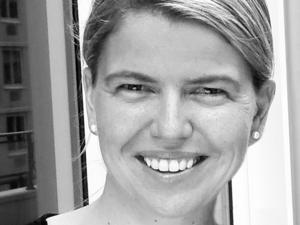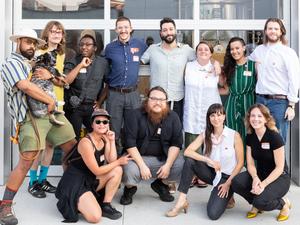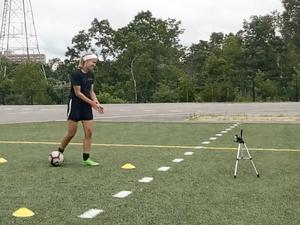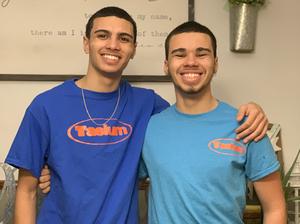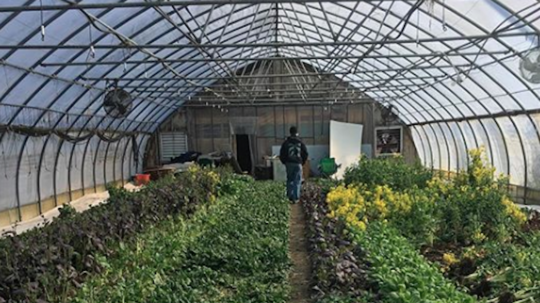
States all across the country have food rescue organizations that harvest fresh farm food before it goes to waste, and then deliver it to people and organizations that need it.
But in Rhode Island, despite the fact that up to 3.5 million pounds of surplus crops are left in the state’s fields every year and 12 percent of Rhode Island residents (51,000 households) are food insecure, past efforts have failed.
Now, a woman with experience in the food sector industry (that includes a stint serving as the assistant director of programs at the Rhode Island Community Food Bank) is ready to fill the gap in the state’s food landscape.
“While there are food rescue organizations like this across the country, we didn’t have one in Rhode Island. I wanted to take advantage of a proven model and adapt it to the unique characteristics of Rhode Island’s food system.”
Eva Agudelo, who is also a member of the Rhode Island Food Policy Council and the South Providence Neighborhood Association, has started Hope’s Harvest Rhode Island, a startup gleaning project she plans to officially launch in July.
Her efforts got a serious boost earlier this month when Agudelo learned that the Rhode Island Foundation had named her as one of three recipients of the Carter Fellowship for Entrepreneurial Innovation, which comes with $200,000 over the next four years.
“While there are food rescue organizations like this across the country, we didn’t have one in Rhode Island. I wanted to take advantage of a proven model and adapt it to the unique characteristics of Rhode Island’s food system,” Agudelo told Rhode Island Inno. “The fellowship is huge and makes a big difference in terms of the resources itself and the visibility and support. For such a large organization to be so supportive is helpful for a startup.”
Most of the funds from the fellowship will go to covering mileage when transporting the food from farms to organizations that need it, as well as equipment such as gloves, knives and sterilized totes. Agudelo has already made a partnership with Farm Fresh Rhode Island to use the organization’s refrigerated trucks, which she said will allow the organization to run lean.
Part of the reason Agudelo thinks past gleaning efforts have failed is due to the fact that there has never been enough stability to provide the level of help farmers need.
“It’s tough for farmers to dedicate resources to getting food out for charitable purposes. In the past, gleaning efforts have been sporadic and inconsistent and that prevents farmers from being able to depend on them,” she said. “To be successful, gleaning operations need to have the proper infrastructure to show up when farmers need them and move that food quickly and efficiently to communities in need."
With Agudelo’s experience, her full attention, partnerships and the boost from the fellowship, which will allow Hope’s Harvest to run for a guaranteed four years, Agudelo thinks Hope’s Harvest can be the solution. She even hopes to direct some income to the farmers as well.
Agudelo’s goal is to glean 60,000 pounds this year and grow that to 100,000 pounds by year four. She will begin volunteer recruitment in May or June, with the goal of signing up 200 volunteers to participate in at least 40 gleaning trips over the course of the growing season.
Other than grants, potential revenue opportunities include charging some small fees from pantries and organizations that use the food, although nothing too burdensome.
According to the Rhode Island Community Food Bank’s annual report, the organization distributed 2.3 million pounds of fresh produce in 2017. But local farms only contributed roughly 16 percent of that supply.
Agudelo would also like to see the organization do some processing to make product available year round, which would require more partnerships to can or freeze goods so they could be utilized year round.
“This is definitely something that is needed,” said Agudelo. “Now, it’s a matter of figuring out how to make sure it runs efficiently and addresses the needs in the best way possible.”
